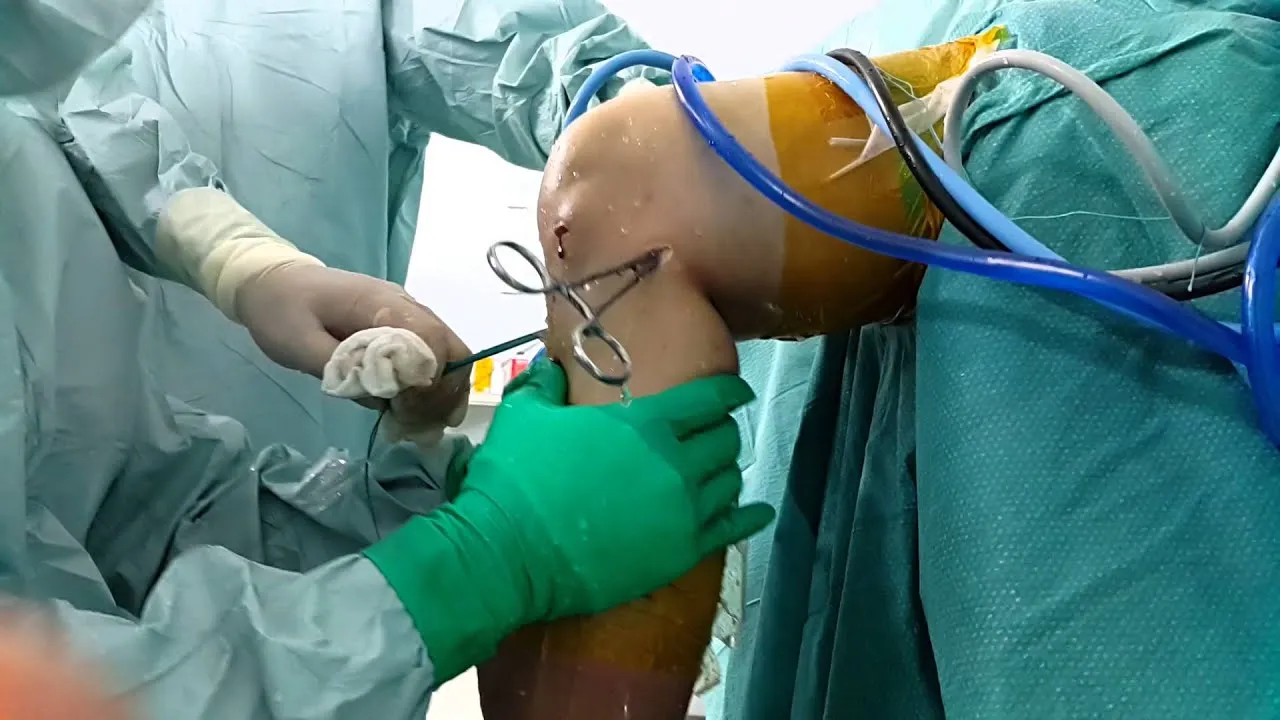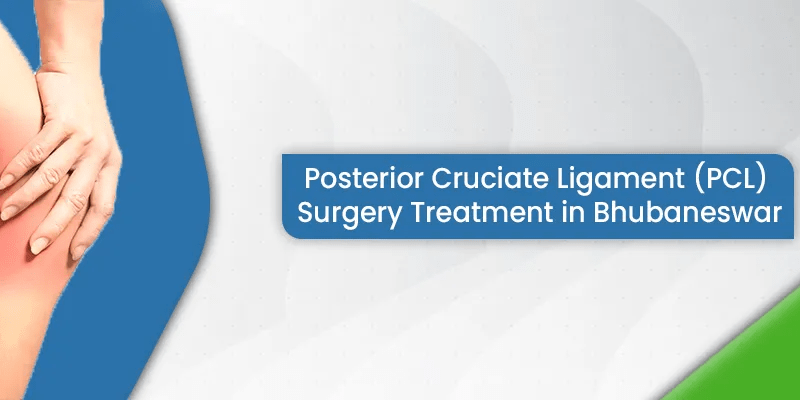The strongest ligament in the knee is the posterior cruciate ligament. The most significant function of the posterior cruciate ligament is to inhibit posterior translation of the knee at increasing knee flexion degrees.
Are you experiencing pain in the ligament behind the knee?
Then PCL surgery from the top orthopedist in Bhubaneswar is advisable for you.
The strongest ligament in the knee is the posterior cruciate ligament or PCL. The most significant function of the posterior cruciate ligament is to inhibit posterior translation of the knee at increasing knee flexion degrees.
It normally takes a lot of force to injure the PCL. Tears are more common after a direct flow to the leg below the knee or directly in front of the knee. The following are some of the most prevalent scenarios that result in a major tear:
- Automobile accidents, especially if your knee collides with the dashboard.
- Sports injuries that cause you to fall to your knees
- A fall or misstep that twists or hyperextends the ligament
The severity of PCL injuries is determined by the degree of damage to the functioning ligament:
- Grade 1 PCL Sprain: a partial tear of the PCL.
- Grade 2 PCL Rip: PCL tear that is nearly complete.
- Grade 3 PCL Tear: a total PCL tear that renders the ligament useless.
When PCL injuries are grade 3 or higher, the best orthopedic doctor in Bhubaneswar recommends getting a PCL surgery.
What is PCL surgery and how does it work?

Preparation for PCL surgery
Your health care team in Bhubaneswar will offer you advice on how to prepare for PCL surgery. They may include the following:
- Getting bloodwork done a few days ahead of time to check for infection, blood clot risk, organ function, and overall health.
- Reducing or eliminating the use of certain drugs
- Giving up smoking
- The day before surgery, no eating or drinking after a particular hour.
- Gather all of the items you’ll need after surgery, such as cold packs, a brace, crutches, and medication.
What can you expect from a PCL reconstruction surgery?
A graft is used to rebuild the PCL ligament during surgery. It is possible to use an autograft or an allograft for the graft.
- Autograft-A fragment of tissue from another part of the body, such as the patellar tendon.
- Allograft- A sample of tissue taken from a donor or a cadaver.
The majority of surgeons undertake PCL repair as an arthroscopic procedure. This allows them to make numerous small incisions and use an arthroscope, which is a unique camera. They remove the injured PCL while also preparing the thigh and lower leg bones for the graft.
To repair the PCL, the best ortho doctor in Bhubaneswar joins the PCL graft on either bone with screws or staples. A typical procedure lasts about 2 hours. This procedure is performed with the least amount of invasiveness possible.
Recovery from PCL surgery
In most cases, recovering following PCL surgery does not necessitate an overnight stay in the hospital. For the first several days after surgery, most individuals will need crutches, and some will wear a tight brace that prevents the knee from bending.
Typically, a formal physical therapy or rehabilitation program begins 1 to 4 weeks post-surgery. Stretches and exercises are commonly used in physical therapy to:
- Boost your strength
- Restore and improve equilibrium
- Increase your range of motion
Depending on the severity of the tear and whether or not there were any accompanying ligament problems, full recovery after PCL reconstruction can take anywhere from 9 months to a year.
Most patients should be able to resume their pre-injury activities within a few weeks. Low-impact exercises, such as swimming or biking, may be required for some persons.
What are the potential hazards of PCL surgery?
Every surgery comes with its own set of dangers. The following are some of the dangers associated with PCL surgery:
- Anaesthesia reactions
- Infection
- Damage to the nerves
- Blood vessel damage.
- Pain
- Swelling
- Numbness around the surgical incision
- Clots in the blood
But these risks can be minimized by doing a PCL surgery from the best orthopedic doctor in Bhubaneswar.
Conclusion
It can stop one from carrying out their daily activities with ease and hinder one from living a normal life. But with PCL surgery treatment from the leading orthopedist in Bhubaneswar, not only your ligament will start to function properly and get back to normal but also your life will get back to normal.
You would be able to perform your daily activities with ease without experiencing any pain in the knee.
Is your PCL injured? So, what are you waiting for?
Visit the best ortho doctor in Bhubaneswar immediately, book your appointment and get your PCL treated.

